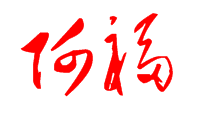BiasedScala: extension makes a right way
王福强
I get to know extension is via Kotlin, After Scala3, extension comes to scala also. Cheerful, isn’t it?
extension is an elegant way to extend types and classes.
I use Commons-Lang3 library a lot to process string things, Let’s say, StringUtils.isEmpty(StringUtils.trimToEmpty(..)) or StringUtils.substringBetween(StrinUtils.trimToEmpty(..), .., ..), it’s necessary for precaution, but tedious, isn’t it? With Scala 3’s extension ability, we can make this more natural and elegant:
extension (s:String) {
def isEmpty():Boolean = StringUtils.isEmpty(s)
def trimToEmpty():String = StringUtils.trimToEmpty(s)
def isEmptyAfterTrim():Boolean = StringUtils.isEmpty(StringUtils.trimToEmpty(s))
def substringBetween(from:String, to:String) :String = StringUtils.substringBetween(s, from, to)
...
}after that, we just use String as the way it is:
val str = "...."
if(str.isEmpty()) ...
if(str.isEmptyAfterTrim())...
val partWeWant = str.substringBetween(.., ..)This’s so cool, and I like it this way.
We can also make extension generic, for example, we want our Money type has a display symbol when convert to string, then we can add an extension to it:
extension [M <: Money] (money: M) {
def toStringWithSymbol():String = {
money match {
case USD => "$"
case CNY => "¥"
case GBP => "£"
case _ => "#"
} + money.amount
}
}With this extension, we can display meaningful information to our customers on GUIs or Pages of our applications:
val m:Money = ...
println(m.toStringWithSymbol) // usually pass with DTOFormerly, if we want to extend some 3rd party libraries classes, we have to wrap them in some utility classes, especially these 3rd classes don’t expose enough priviledge to extend them.
Now, with extension of Scala 3, we just provide an extension to them, and everything goes like a charm.
开天窗,拉认知,订阅「福报」,即刻拥有自己的全模态人工智能。



